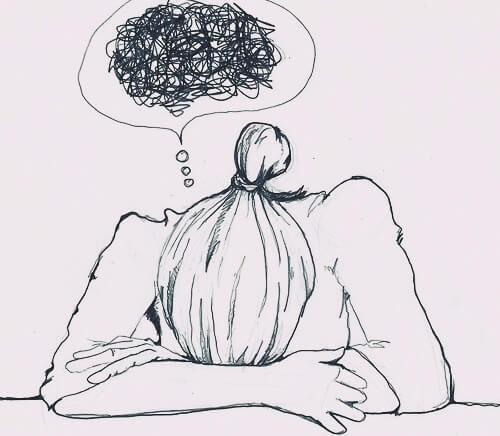Anxiolytics: The Pills That Live on Nightstands Everywhere


Written and verified by the psychologist Raquel Aldana
Anxiolytics are medications doctors prescribe to help control anxiety. Some people also call them “alcohol in pill form”, alluding to their potentially addictive nature and how easily they can be used and abused. These days, you can find anxiolytics on nightstands everywhere. They’re overprescribed and overused.
We live in a society that’s dependent on medication. It’s too easy to turn to prescription drugs to try to solve our problems.
“You cannot avoid anxiety, but you can reduce it. Anxiety management consists of reducing it to normal levels, and then using that normal anxiety as a stimulus to increase your self-awareness, vigilance, and the will to live.”
-Rollo May-

The active ingredient in anxiolytics
These days, we know how and where anxiolytics (benzodiazepines) act in greater measure than other drugs that are supposed to treat psychiatric and psychological problems. They favor the action of the neurotransmitter GABA. GABA is present in more than 30% of neural synapses. GABA’s function is to get in the way of neural electrical impulses. So, what GABA really does is reduce the excitability of neural activity.
The receptors that benzodiazepines act on aren’t just related to anxiety. These receptors also play a role in memory and motor abilities. Consequently, the effects of benzodiazepines aren’t specific and tend to have quite a lot of side effects.

Should anxiolytics be the first or only option?
We get anxiety when our minds go faster than life itself. However, it’s true that anxiety isn’t good or bad in and of itself as an emotional response. It becomes pathological if it limits you during a certain period of time. In addition, it can also be a problem if it gets in the way of your experiences and growth.
In this regard, Dubin (2009) wrote: “Should we really be embarrassed about anxiety attacks? No. I see anxiety attacks as analogous to the physical response of having to vomit. Vomiting isn’t good or bad. It’s something that happens and usually serves the purpose of ridding your stomach of harmful contaminants. But you’d never want to vomit in public, right? The first thing that you’d do if you started to feel nauseous is look for the nearest bathroom to avoid embarrassment. Vomiting isn’t something you want to do in front of other people. The same thing goes for panic attacks.” [translation]
Using pills to numb the pain
If you use pills on a regular basis, they turn into pain relievers for life in general. They numb your senses and thoughts. They can help you get rid of your pain without actually having to address their root causes. Taking anxiolytics is like turning off the fire alarm when the fire is still burning.
This is a very unhealthy habit. Using and abusing these medications doesn’t free us from their effects. In some cases, we can use medication to check the intensity of our unhappiness that’s derived from anxiety. Nevertheless, medication isn’t the only treatment people should try.
When we suffer from anxiety, we need to rehabilitate our mind. We have to re-learn how to be in the world and we need help with that. That’s why it’s important to get psychiatrists and psychologists involved. If you have help, you can avoid dependence on strong medications. You can also solve your problems in a healthy way instead of turning to the pills on your nightstand.
All cited sources were thoroughly reviewed by our team to ensure their quality, reliability, currency, and validity. The bibliography of this article was considered reliable and of academic or scientific accuracy.
González Pardo, H. & Pérez Álvarez, M. (2007). La invención de los trastornos mentales. Alianza Editorial, S.A. Madrid.
This text is provided for informational purposes only and does not replace consultation with a professional. If in doubt, consult your specialist.








